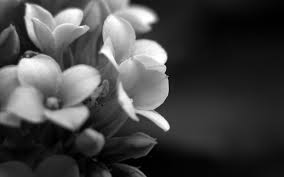记忆方法
1. 一只露出大腿的蚂蚁.
分析:e——“鹅”的拼音;leg——脚;ant——蚂蚁。
记忆:鹅的脚上趴着一只优雅的蚂蚁。
分析:e——“鹅”的拼音;leg——脚;ant——蚂蚁。
记忆:鹅的脚上趴着一只优雅的蚂蚁。
中文词源
elegant 优雅的
e-, 向外。-leg, 收集,选出,词源同college, eligible. 即选出来的,优秀的,优雅的。
英语词源
- elegant
-
elegant: [15] Someone who made careful, fastidious choices was termed in Latin ēlegāns. This was the present participle of a hypothetical verb *ēlegāre, a derivative of ēligere ‘pick out, select’ (source of English elect). Originally it seems to have been a derogatory term – ‘fussy, foppish’ – but by classical times it signified more approvingly ‘making refined choices’, and was also transferred to the things chosen – ‘choice, tasteful’. English probably acquired the word via French.
=> elect - elegant (adj.)
- late 15c., "tastefully ornate," from Middle French élégant (15c.), from Latin elegantem (nominative elegans) "choice, fine, tasteful," collateral form of present participle of eligere "select with care, choose." Meaning "characterized by refined grace" is from 1520s. Latin elegans originally was a term of reproach, "dainty, fastidious;" the notion of "tastefully refined" emerged in classical Latin. Related: Elegantly.
Elegant implies that anything of an artificial character to which it is applied is the result of training and cultivation through the study of models or ideals of grace; graceful implies less of consciousness, and suggests often a natural gift. A rustic, uneducated girl may be naturally graceful, but not elegant.
权威例句
- 1. She produces elegant wedding gowns in a variety of sumptuous fabrics.
- 她用各种华贵的布料制作高雅的婚纱。
- 2. An elegant occasional table is framed in the window.
- 一张雅致的供重大活动使用的餐桌被摆放在橱窗里。
- 3. She brought in a tray heavy with elegant sandwiches, scones and cakes.
- 她端进来一只盘子,里面盛满了精美的三明治、烤饼和蛋糕。
- 4. Two elegant Scotsmen travelling together wore dashing kilts at dinner.
- 两名结伴旅行的优雅苏格兰男子就餐时穿了潇洒的苏格兰方格呢短裙。
- 5. He was a baroque figure dressed in theatrical, but elegant, clothes.
- 他是个巴罗克式的人物,衣着华丽但又不失优雅。

